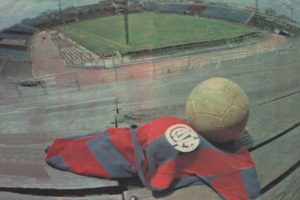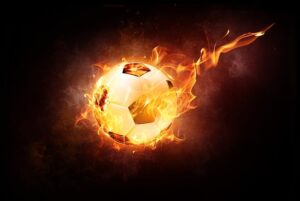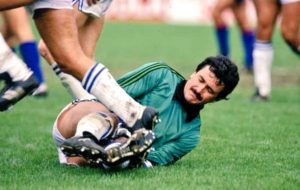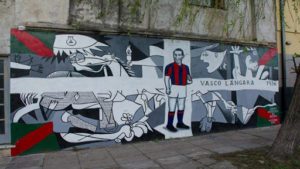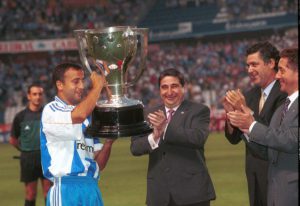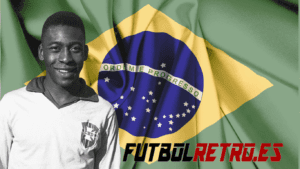The USSR and the revolution that changed to football
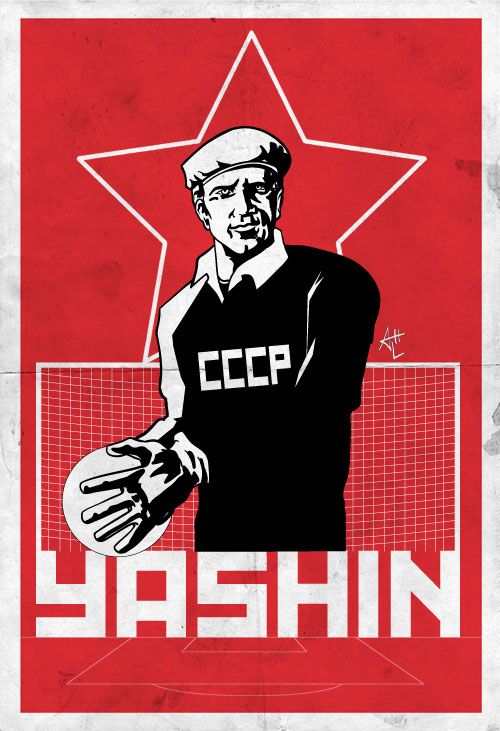
Last update September 23, 2020 by Javier Argudo
At the time when the Bolsheviks crossed the large square that separates the Winter Palace of the rest of St. Petersburg, our history changed. Those "Ten Days That Shook the World" (borrowing the title of the famous American journalist John Reed) They resulted in the creation of the first socialist state in history, ending a czarist regime in power after centuries had proved unable to modernize a country that, in many aspects, It was based on an almost feudal organization. The Soviets began to spread throughout the Russian territory; He was signed the peace of Brest-Litovsk, whereby, newborn Union of Soviet Socialist Republics (onwards USSR) He abandoned World War I.; and the short time, the new workers' power had to face an uprising of Tsarist nobles, with the support of the European powers, They plunged the country into civil war. When the war ended and the Bolsheviks were able to settle stably in power, nothing was ever the same, and the football, Of course, It was no exception.
The football, because in the first moments of the export of the sport they continued to use English terms, He landed in Russia at the end of the nineteenth century. The city of St. Petersburg (its capital and its proximity to Western Europe were no fluke) He hosted the first meeting in the year 1898, while Moscow had to wait 1901. A the same as in the rest of Europe, terms like offside O corner They became widespread among those young (and not so young) Russians were fascinated by the new game that came from the British Isles. During these early stages different local leagues were organized in the already mentioned St. Petersburg and Moscow, well as in other Russian cities, although it is true that uniformity in the rules nonexistant. For example, at the beginning of the journey of football in Russia was common to find different dimensions on the pitch, a factor, obviously joined amateurism, could explain the scandalous 0 a 16 Russia received from Germany in the Stockholm Olympic Games 1912, the first time the Russian football participated in the Olympics.
Shortly after the Olympic disaster World War I broke out. The taking of power by the Bolsheviks and a civil war that lasted until the year 1923 caused that the sport was not a major concern of the new government headed by Lenin. However, the end of the civil war marked the beginning of the socialist organization of Russian society, regardless of that since 1921 got underway NEP (New Economic Policy) in order to revive the economy by mixing capitalist elements and Communists. This new state organization meant a shift in the conception of sport, betting on an educational and training approach that contrasted sharply with the mentality rooted in Europe and America. In this regard include the measure adopted by the Provincial Council for Physical Culture Muscovite Year 1924, when he proposed a system of competition where the score was only one element to consider, combined with other factors like the number of expelled or use of players also participate in other sports.
Such provisions is understandable if you take into account that during the first years of Soviet hegemony football was considered a bourgeois sport, whose main risk was to injure the proletarian masses. But nevertheless, with the rise of Stalin to power the situation began to change for football. Georgian dictator never consider that "the political form most appropriate for football [outside] that of socialism ", as Simon Critchley said many years later. Neither I nor introduced the idea, as it did Antonio Gramsci, that football was the "kingdom of human loyalty exercised outdoors". Stalin opted for football, but not because I share the postulates of the Italian Communist, but because it considered that the USSR He had "systematically ahead of the achievements of athletes bourgeois capitalist countries". It was like this, for reasons merely propagandistic, as the Soviet Union sidestepped the educational perspective of sports and developed his professional, being included, how could it be otherwise, football. In fact, Thus it was that in May 1936 It was organized a Soviet League, where the strongest teams of all socialist federation began to fight for the hegemony of the proletariat football.
At this point one might ask what had particular the Soviet football, especially if we consider that soon pass from amateurism to professionalism, imitating the model of the capitalist football. This is not an article that will develop in the history of the Soviet football, well, among other things, would be necessary only several books to cover as many years of history Balompédica. What I want, but nevertheless, It is to focus on one of the peculiarities that arose during the early years of the regime, consequences extend until today. I mean filiation, and in consequence, to name most of the teams that were organized, not only in the territory of the USSR, but also in those countries after World War II came under the Soviet orbit.
From the year 1923 the organization of the sport began to undergo a radical transformation that went beyond the conception of it as an activity amateur. From that year only those companies that were related to regional agencies or companies recognized (public character, Of course). A) Yes, new sports entities that had a football section was created; at the same time as other previous societies revolution, or they disappeared, or they happened to be managed by newly formed entities. It was thus began to emerge names such as CSKA, Dynamo O Lokomotiv, which it has become the collective imagination of all football fans.
CSKA
The CSKA (stands belong to Central Sports Club of the Army) It was founded originally in 1911, but in the year 1923 It was transferred to the Army Red, which, led by Trotsky, He had just defeated civil war. It officially became the army team, and in consequence, one of the strongest teams of Soviet league, highlighting the possibility of using players who find doing military service. further, its acronym were not used exclusively within the Russian sphere, but today there are still other teams such as CSKA Sofia and CSKA Pamir Dushanbe (Tajikistan), giving a good example of the ancient springs of Soviet power in the East football.
DYNAMO
The Dynamo is another team that resonates in the minds of all lovers of the beautiful game, and the same happened with CSKA, replicas found in other countries in Eastern Europe after World War II. A) Yes, we are used to hearing from the Dynamo Kiev, the Dynamo de Zagreb one he Dynamo de Tbilisi, and although no longer resound both, the exploits of equipment such as Dynamo Berlin, the Dynamo Bucharest one he Dynamo Dresden They remain in the memory of his followers. However, Dynamo Moscow, and its aftershocks in other socialist territories, He never was seen favorably by much of the population of their respective countries, because under his name is covered up to the football team of security services, feared and respected equally.
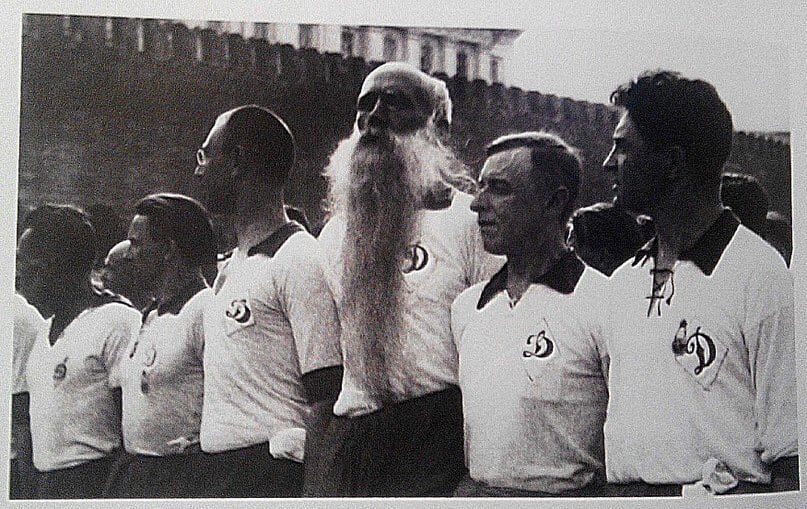
SPARTAK
The name of Spartak, meanwhile, It arises in a completely different context. At first the club was created in the Presnya (Krasnaja Presnya renamed after the triumph of the revolution) under the name of Moskovski Kruzok Sporta, although he is popularly always called Krasnaja Presnya, so that a year later adopted such denomination officially. Following the reforms already mentioned in the year 1923, the company happened to be governed by the committee of the Komsomol district, but in the year 1926 there was a new sports reform in the USSR, and the removal of all equipment connected to districts decreed, allowing only the survival of the companies will relate to companies. Thus, the Krasnaja Presnya became the Pisceviki (which translates directly "alimentaristas"), related to the Central Committee of the Workers Syndicated Foods Sector. Years later, in 1931, the Union of which it depended on the team imploded in various organizations, passing the club to be called Promkooperaciya (Production cooperative). But it was finally in the year 1936 when, after the joint approval of the All-Union Council for Physical Education and the Board of Commissioners of the people of the Soviet Union it was approved, a proposal from the Starostin brothers (members and founders of the club) the name of Spartak. With this name did not refer to any new landmark of the USSR, but they reminded Spartacus, the famous slave who led a rebellion against Rome.
LOKOMOTIV, TORPEDO, METALLURG…
No doubt CSKA, Dynamo and Spartak are the teams that we recognize when we speak of the Soviet football. However, there are others whose names combined have assimilated today, but also rooted in decisions of the new Soviet authorities. A) Yes, The mythical Lokomotiv club was a dependent of the railroad industry; the Torpedo, meanwhile, It was founded around the automotive sector; the Metallurg, As its name indicates, He grew up in the shadow of the metallurgical industry; and the Shaktar Donetsk It was related to the coal industry of the Ukrainian region (not in vain, Shaktar means "coal miner"). The list extends to lesser-known teams, as was the case of the Chernomorets, which literally means "sailors of the Black Sea"; the Krylia Sovetov, which can be translated as "Wings of Soviets" and encompassed the aviation industry; the Stroitel, who was in charge of bringing together the construction workers; one he Khimik, the team erected around the chemical industry.
But the USSR, and with it the network of dependent teams of various productive sectors of the country, It ended. At the same happened with other Soviet enterprises, the arrival of the free market turned all these teams in private entities in most cases remain more pain than glory. Only the future will tell us if we see a new Lev Yashin lifting an international title with the Dynamo Moscow, but the truth is that the football business has long since reached the door of Russia, and with him, the mysticism of those teams whose names continue to fascinate us, He went out the window.


